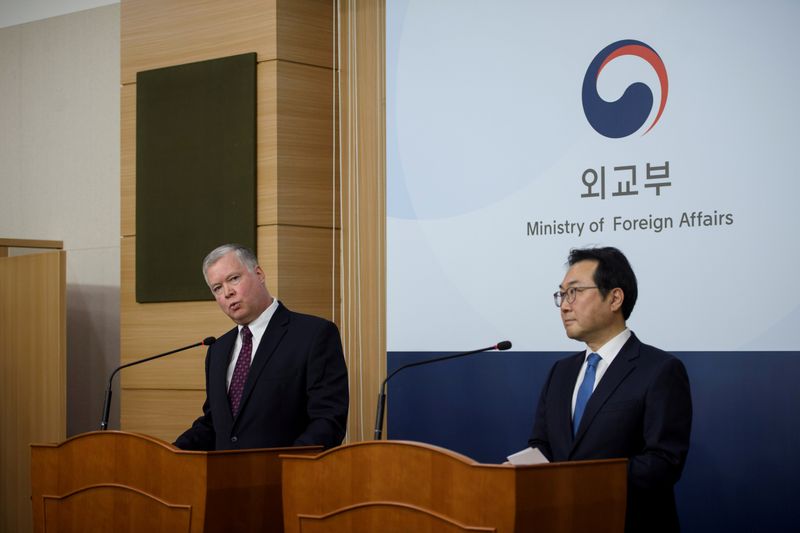WASHINGTON (Reuters) - The U.S. special envoy for North Korea, Stephen Biegun, will visit Beijing on Thursday and Friday, the U.S. State Department said on Tuesday, after China and Russia proposed lifting some U.N. sanctions on North Korea.
Biegun will meet Chinese officials "to discuss the need to maintain international unity on North Korea," the State Department said in a statement.
Biegun will travel to China after holding talks with officials in South Korea and Japan this week.
Tension has been rising in recent weeks as North Korea has conducted a series of weapons tests and waged a war of words with U.S. President Donald Trump, stoking fears the two countries could return to the collision course they had been on before launching diplomacy last year.
China and Russia proposed on Monday that the U.N. Security Council lift a ban on North Korea's exporting statues, seafood and textiles, according to a draft resolution seen by Reuters.
Russia said the draft, whose measures also included the lifting of a ban on North Koreans working abroad, was aimed at encouraging talks between Washington and Pyongyang.
A U.S. State Department official said now was not the time for the Security Council to consider lifting sanctions as North Korea was "threatening to conduct an escalated provocation, refusing to meet to discuss denuclearization, and continuing to maintain and advance its prohibited weapons of mass destruction and ballistic missile programs."
North Korea has vowed to take an unspecified "new path" if Washington fails to soften its stance before the end of the year.
Biegun ended a three-day visit to South Korea on Tuesday where he tried to salvage negotiations but did not appear to get a response from Pyongyang to his call to discuss "all issues of interest."
On Monday, Biegun reached out directly to the North, saying: "It is time for us to do our jobs. Let's get this done. We are here, and you know how to reach us."

U.S. Defense Secretary Mark Esper said on Monday that North Korea would likely carry out unspecified tests if they "don’t feel satisfied."